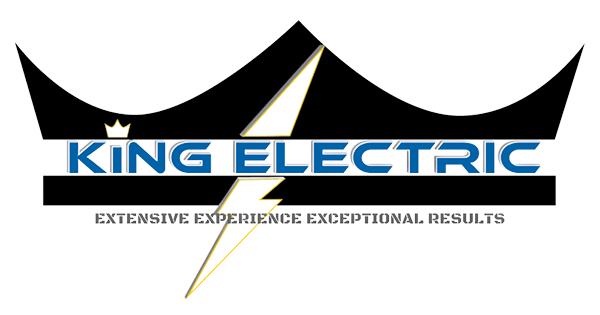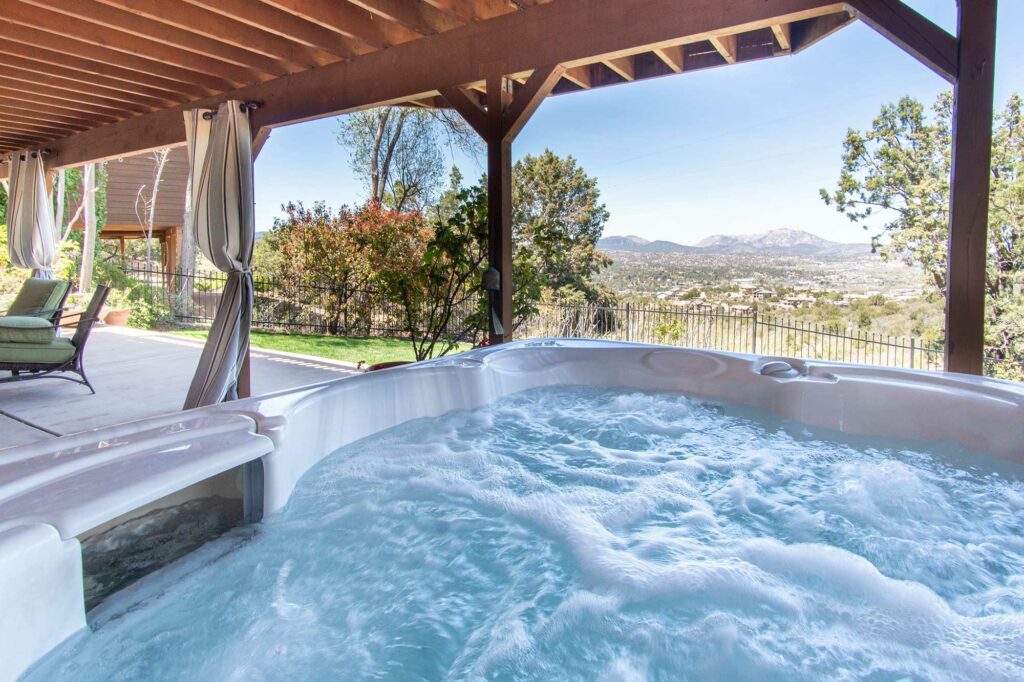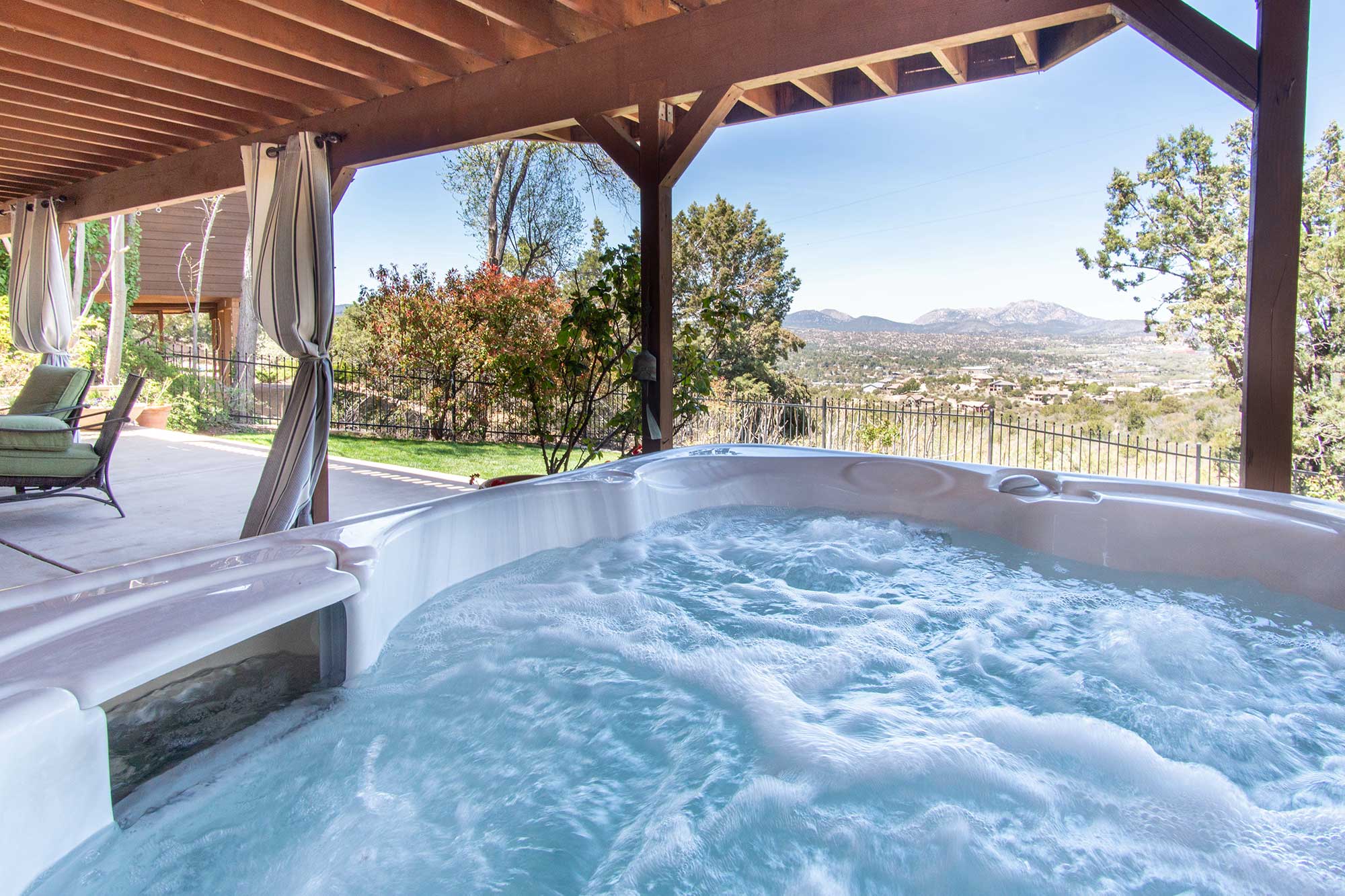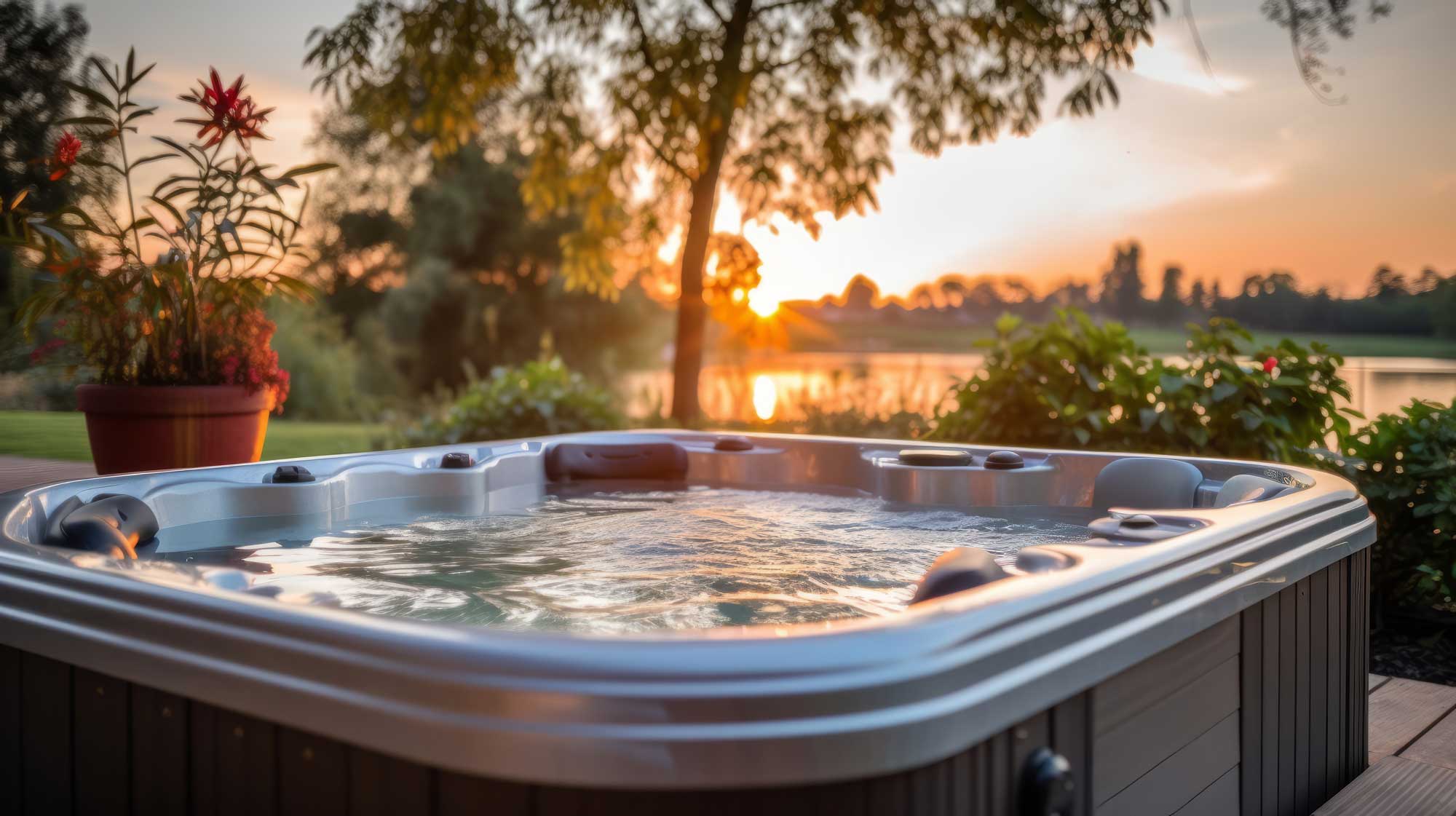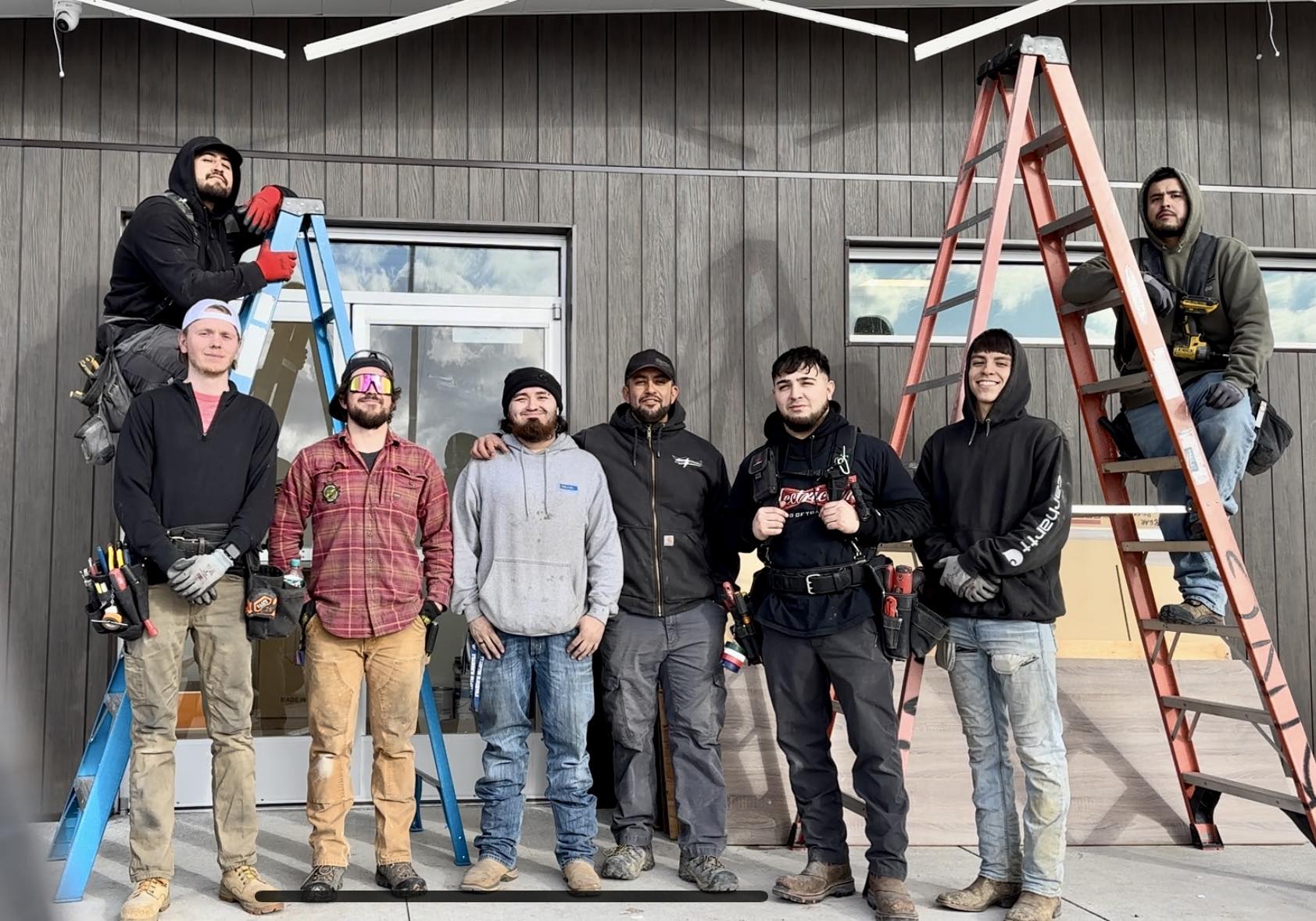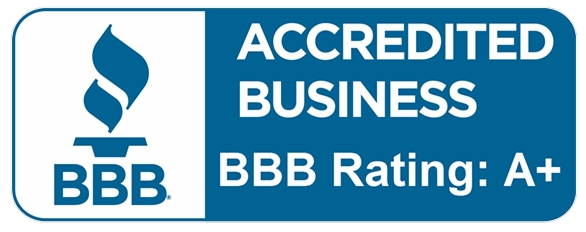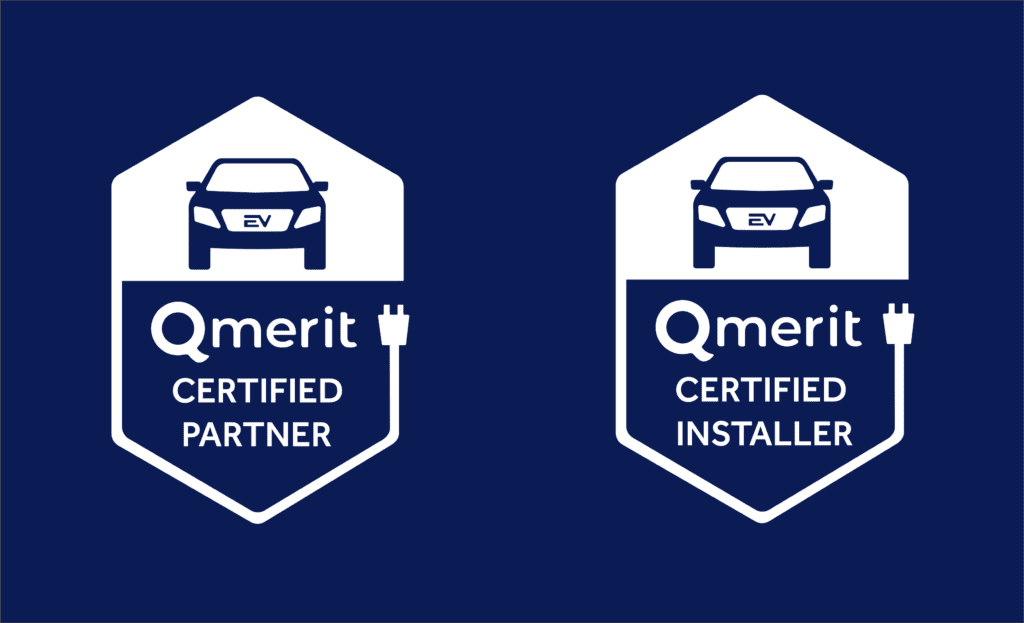Have you been considering getting a hot tub? Perhaps you’ve been dreaming of that ideal outdoor setting, or maybe you’re looking to put one inside your home. Getting a hot tub installed is indeed a fantastic addition to any home, but there are several considerations and precautions to keep in mind, particularly when it comes to residential electrician hot tub installation.
Get a Free Estimate
Fabian Flores the owner of King Electric, LLC has over 20 years of experience and understands the specific needs and requirements for a residential electrician hot tub installation. Here’s what people should know about hot tub installations and the role of a residential electrician:
Electrical Requirements
Hot tubs require a dedicated electrical circuit to operate safely and efficiently. The specific electrical requirements vary depending on the size and model of the hot tub, but it typically involves a 240-volt circuit with a dedicated breaker. A residential electrician hot tub installation can assess your home’s electrical system to determine if it can support the hot tub’s power needs.
Wiring and Electrical Connections
The wiring and necessary electrical connections for a hot tub is a job best left to a qualified electrician. They have the knowledge and expertise to ensure that the wiring is done correctly, following all safety codes and regulations. Improper wiring can not only damage the hot tub but also pose a serious safety hazard, including the risk of electric shock. Here are key things you should be aware of in residential electrician hot tub installation:
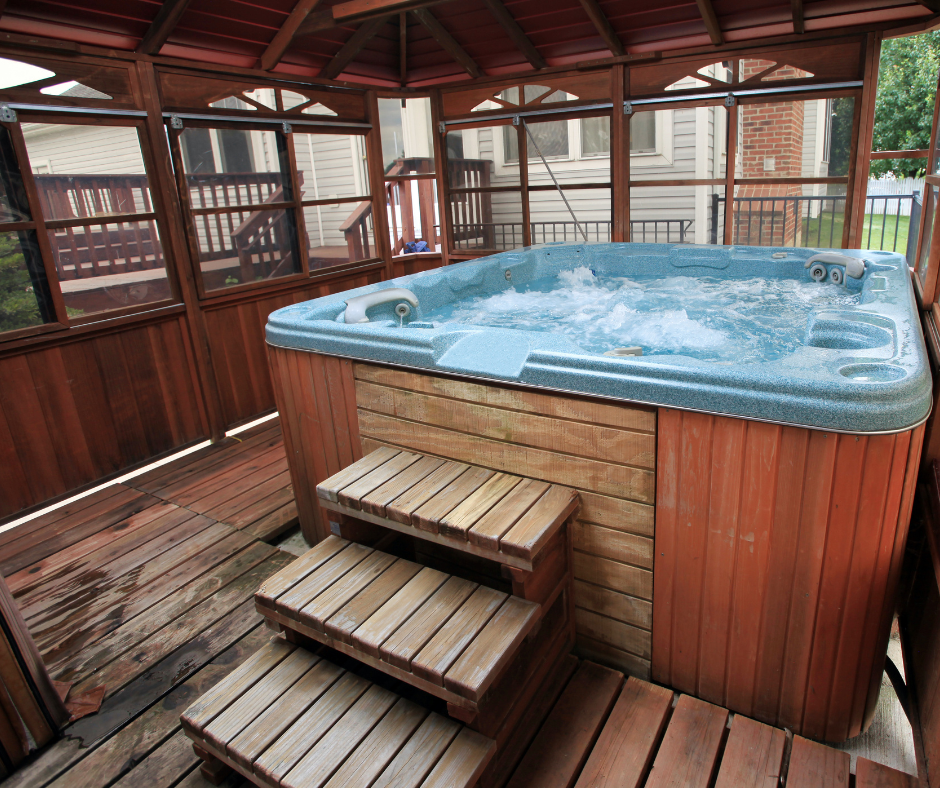
- Voltage and Current Rating: Hot tubs typically operate on either 120 volts or 240 volts, with 240 volts being more common for larger tubs. Check the manufacturer’s specifications for the exact voltage and current rating required for your hot tub.
- Circuit Breaker: You’ll need a dedicated circuit breaker for the hot tub. The breaker should be sized according to the hot tub’s electrical requirements and local electrical codes. Typically, a 50-amp breaker is required for most hot tubs operating at 240 volts.
- Wire Size: The size of the wiring depends on the current rating of the hot tub and the distance from the main breaker panel to the tub. Consult the National Electrical Code (NEC) or one of our qualified electricians can determine the appropriate wire gauge for your installation.
- Wiring Method: The wiring should be installed using approved methods and materials according to local electrical codes. It’s typically recommended to use copper wiring for residential electrician hot tub installation.
- Conduit: In some jurisdictions, electrical wiring for outdoor installations like hot tubs may need to be installed in conduit for added protection against environmental factors.
- Grounding and Bonding: Proper grounding and bonding are essential to ensure the safety of the hot tub installation. A residential electrician hot tub installation will ensure that the hot tub is properly grounded and bonded to prevent electrical shock and protect against potential lightning strikes.
GFCI Protection
GFCI stands for Ground Fault Circuit Interrupter. A GFCI is a device designed to protect against electrical shock by quickly shutting off power to a circuit when it detects that current is flowing along an unintended path, such as through water or a person. GFCI protection is mandatory for hot tub installations to prevent electrical shocks.
It works by constantly monitoring the flow of electricity in a circuit. If it detects even a small imbalance in the flow of current, which could indicate a ground fault (current leakage to ground), it trips the circuit, cutting off power almost instantly. This rapid response helps prevent electrical shocks and reduces the risk of electrocution, particularly in wet or damp environments like bathrooms, kitchens, outdoor outlets, and hot tubs.
In the context of a residential electrician hot tub installation, a GFCI breaker or outlet is standard for ensuring safety, as it protects against potential hazards associated with electrical equipment near water. It’s a critical component of the electrical system, providing an added layer of protection for anyone using the hot tub.
A residential electrician hot tub installation will include GFCI protection devices in accordance with local electrical codes to ensure the safety of the hot tub users. The GFCI breaker should be installed in the main breaker panel and should trip if it detects a ground fault, cutting off power to the hot tub.
Post-Installation and Emergency Considerations
After the hot tub installation, it’s essential to follow proper maintenance and safety guidelines. Regularly inspect the electrical components of the hot tub, such as the wiring and control panel, for any signs of damage or wear. Keep the area around the hot tub clear of debris and ensure proper ventilation to prevent overheating of electrical components.
It’s crucial to know what to do in case of electrical emergencies, such as power surges or electrical faults with the hot tub. Familiarize yourself with the location of the circuit breaker or disconnect switch for the hot tub so that you can quickly shut off power in case of emergency.
King Electric, LLC for Your Residential Hot Tub Installation
Consulting professionals like King Electric, LLC for residential electrician hot tub installation is highly recommended to ensure the safety and proper functioning of your hot tub’s electrical system. From assessing electrical compatibility to wiring and connection, an electrician’s expertise is invaluable in completing a safe and reliable installation. It is also recommended to follow proper maintenance guidelines and be prepared for electrical emergencies for the ongoing safety and enjoyment of your hot tub.
King Electric, LLC
King Electric, LLC is a Qmerit Certified Partner. Only select electrical service providers earn the exclusive Qmerit certification, a symbol of excellence in electrification. King Electric, LLC, is located in Fort Collins and serves Fort Collins, Greeley, Windsor, Loveland, Wellington, Johnstown, Milliken, Timnath, Severance, Longmont, Firestone, Boulder, and surrounding areas. Call 970-829-5464 or contact us for more information about our services or a free estimate.
